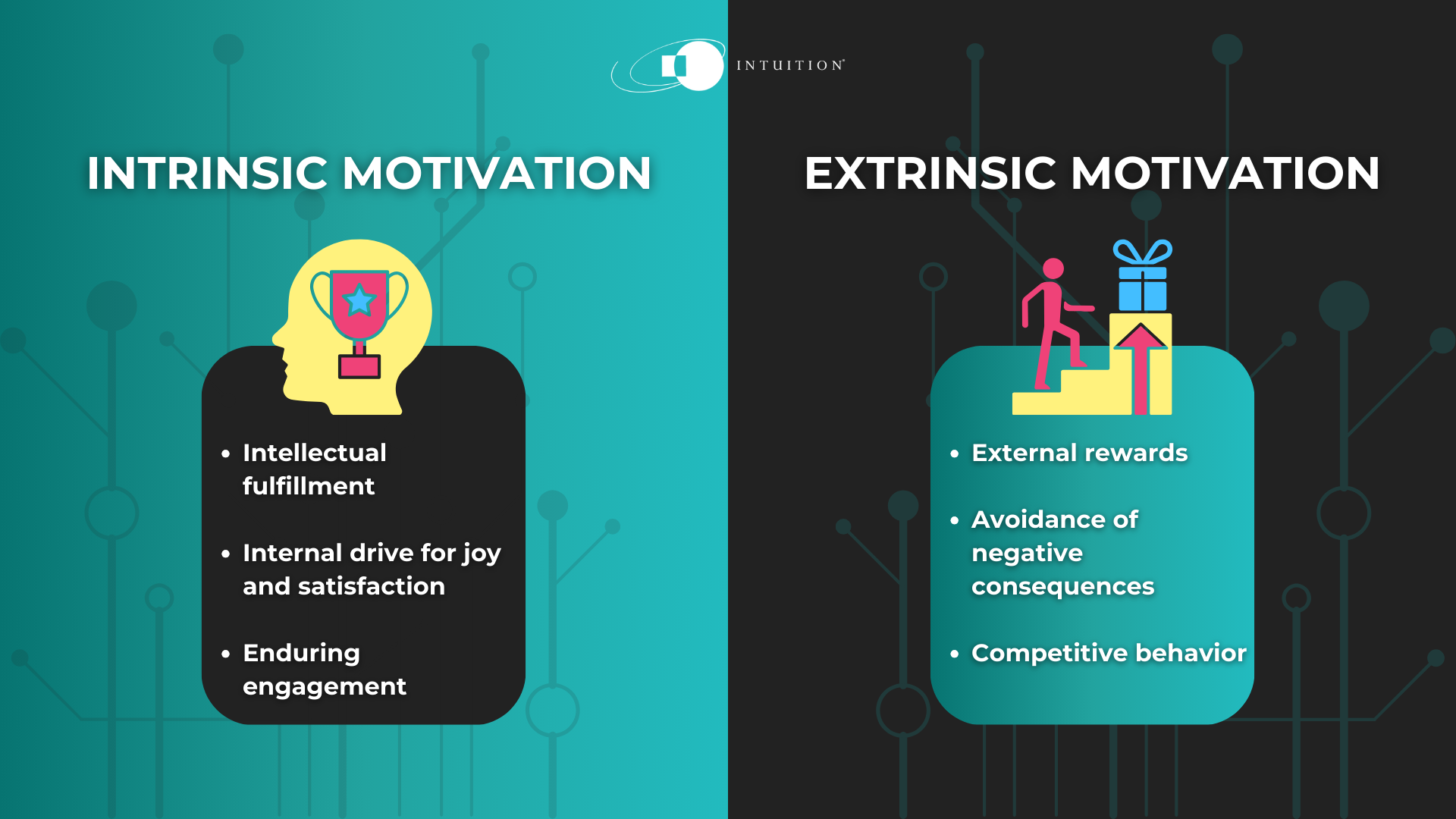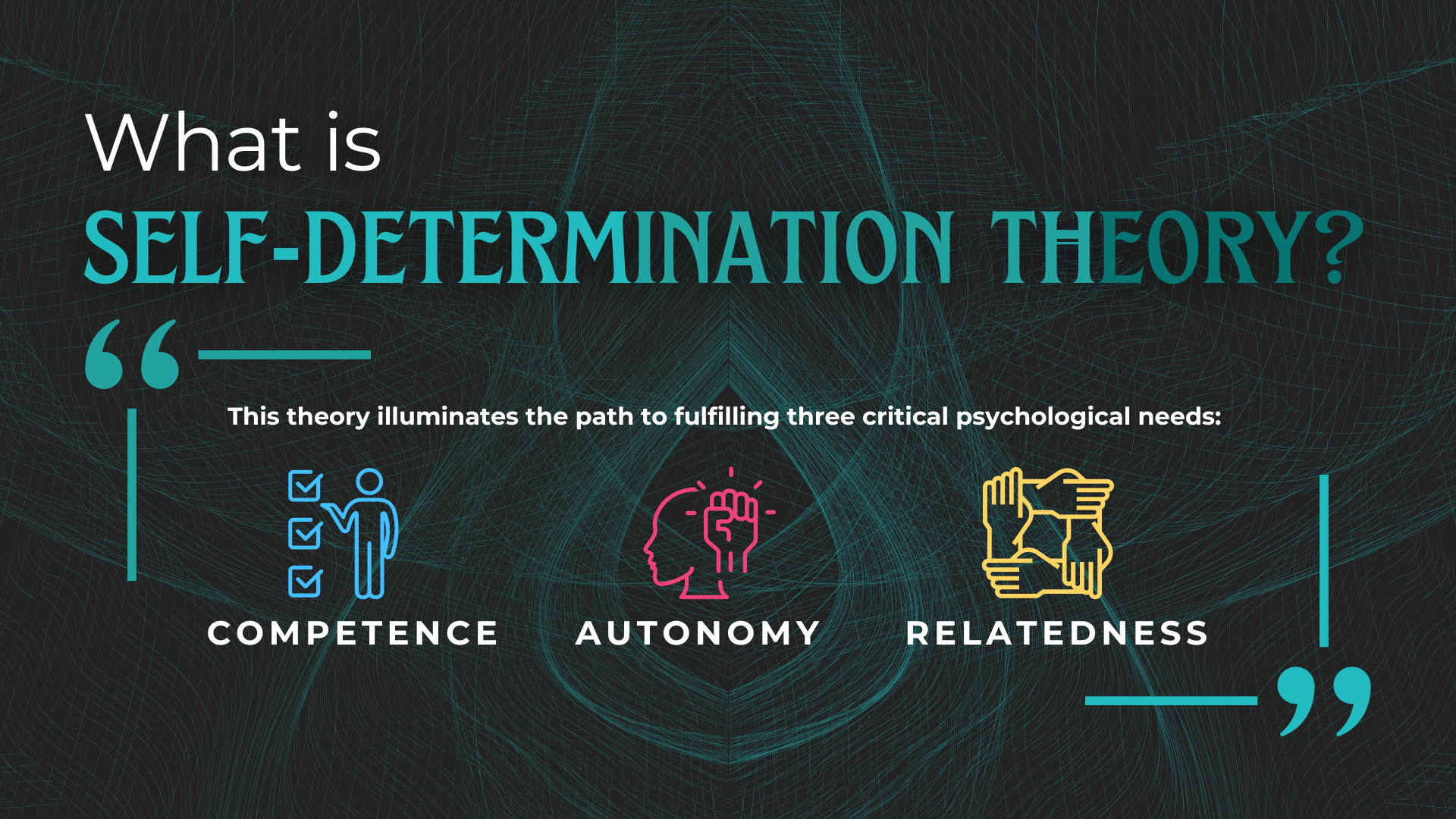The psychological underpinnings of gamified learning
In the dynamic realm of education and corporate learning, gamified learning has emerged as a beacon of innovation, significantly transforming the traditional paradigms of teaching and learning. At its heart lies a universally acknowledged psychological principle: motivation. Delving into the motivational framework that gamified corporate learning employs is not merely academic; it is a strategic approach to designing learning experiences that captivate, educate, and endure.
Other articles in this series:
Gamification 101: Gamified corporate learning evolution
Game-Based Learning (GBL) vs gamification in learning
Four ways to gamify your company’s corporate learning strategy
Intrinsic vs. extrinsic motivation: Catalysts for engagement
Motivation, the driving force behind gamified corporate learning, branches into two distinct but equally important types: intrinsic and extrinsic motivation, each of which play a pivotal role in the architecture of these learning environments.
Intrinsic motivation
Intrinsic motivation is the internal drive that propels individuals to engage in activities for the sheer joy and satisfaction derived from them. Within the context of gamified corporate learning, it could manifest as the intellectual fulfillment a learner receives from overcoming a complex challenge or mastering a new skill. This form of motivation is the cornerstone of enduring engagement and profound comprehension.
Extrinsic motivation
Extrinsic motivation, in contrast, is motivated by external rewards or simply by the avoidance of negative consequences. Gamified learning adeptly utilizes extrinsic motivators—points, badges, leaderboards, and certificates, for example—to spur participation and ensure the completion of learning modules. While these elements are critical in drawing learners into the educational process, the aim of gamified learning is to transcend mere participation, fostering a deeper, intrinsic connection to the learning material.
Striking a balance between intrinsic and extrinsic motivation is the hallmark of an effective gamified corporate learning strategy. By weaving together game mechanics that cater to both types of motivation, gamified learning environments not only boost learner engagement but also promote a richer, more meaningful educational experience.

Psychological theories at the core of gamified learning
Self-Determination Theory (SDT) stands as a foundational pillar underpinning the efficacy of gamified corporate learning. This theory illuminates the path to fulfilling three critical psychological needs: competence, autonomy, and relatedness, each of which gamified learning adeptly addresses.
Competence
This encapsulates an individual’s need to feel proficient and successful. Gamified learning meets this inherent human need through tailored feedback and progressively challenging tasks, enabling learners to perceive tangible growth and achieve mastery over their learning journey.
Autonomy
This reflects an individual’s desire to be the architect of their own actions and decisions. Gamified corporate learning enriches this dimension by offering learners the autonomy to choose their learning pathways and strategies, thus placing them at the helm of their educational voyage.
Relatedness
Relatedness, the craving for connection and belonging, is nurtured in gamified learning through collaborative challenges, community leaderboards, and social interactions, weaving a tapestry of communal learning that extends beyond the confines of the traditional classroom.
Incorporating these psychological insights into gamified learning design not only heightens engagement but also ensures that the learning experience resonates on a deeper emotional and cognitive level.

Conclusion: Amplifying the impact of gamified learning through psychological insights
The interplay between intrinsic and extrinsic motivations, underscored by the tenets of Self-Determination Theory, forms the psychological backbone of gamified corporate learning. This nuanced understanding of human motivation and needs is instrumental in crafting learning experiences that are not merely engaging but transformative.
As we venture further into the exploration and application of gamified corporate learning, the integration of these psychological principles promises to refine and enhance the efficacy of educational programs. By leveraging the intrinsic appeal of gaming within a structured learning framework, gamified corporate learning stands as a testament to the profound impact that informed, psychologically grounded educational strategies can have on learner engagement, satisfaction, and achievement.
References:
- How do you use gamification and behavioral economics to enhance employee engagement and performance?
- Guide to gamification
- An empirical study on the impact of learning theory on gamification-based training programs
- Gamification in Corporate Training: Engaging Employees for Enhanced Learning
- Revealing the theoretical basis of gamification: A systematic review and analysis of theory in research on gamification, serious games and game-based learning


